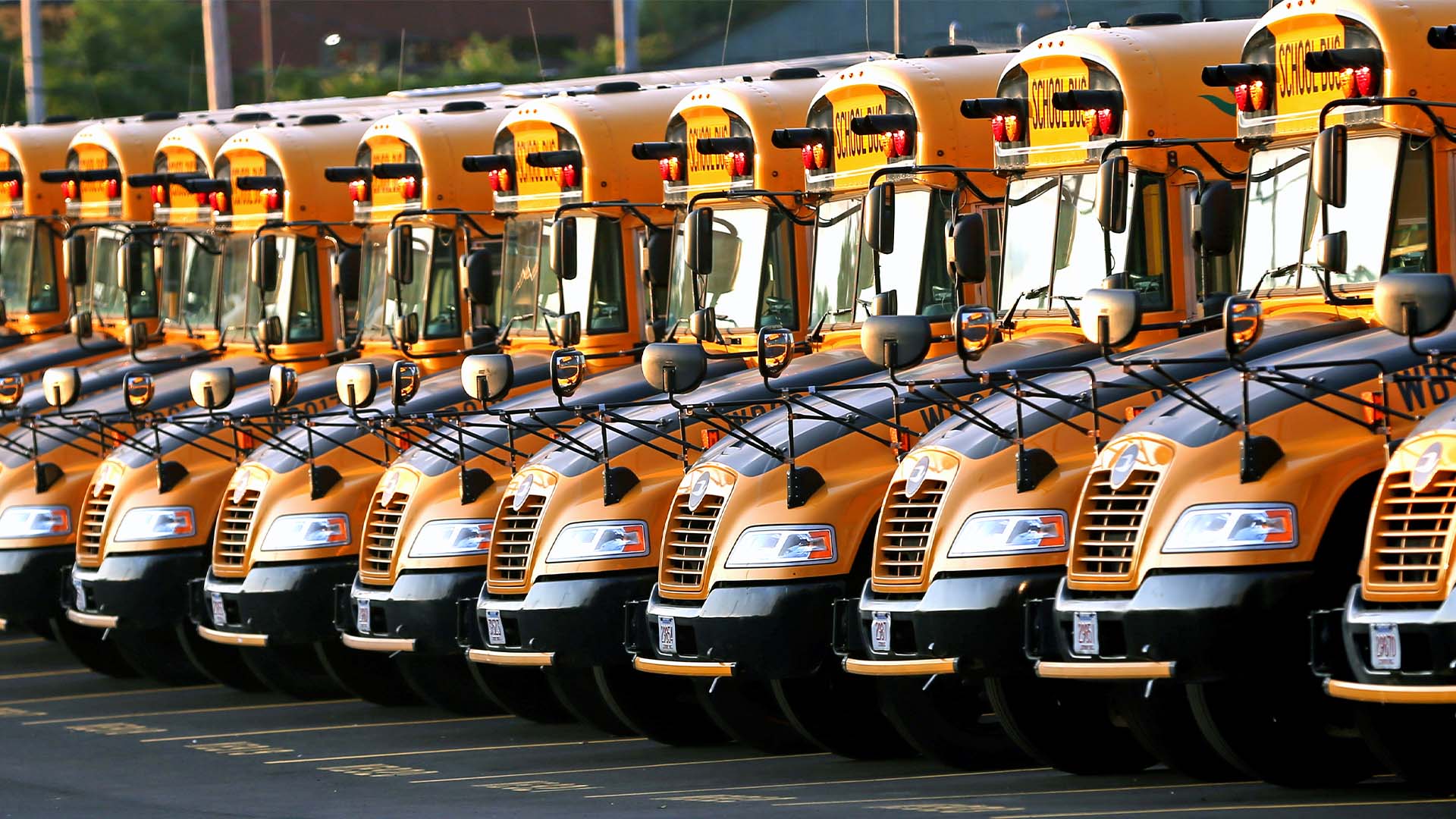

Massachusetts Governor Charlie Baker announced on Monday that he has activated the state’s National Guard to assist with staffing shortages, namely those that are plaguing the public education system’s transportation services.
The governor’s order will immediately activate 90 Guardsmen to serve in the areas of Chelsea, Lawrence, Lowell, and Lynn, with another 160 available for additional communities should the need arise.

As schools kick off the new academic year with a resumed focus on in-person learning, districts are facing transportation challenges that have many administrators scratching their heads.
The shortage of trained staff eligible to transport students has become more apparent as the pandemic carries on. Many districts nationwide are now facing challenges to provide adequate transportation for students, including those in Massachusetts where Governor Baker called in the National Guard to help.
Guard members who are dispatched to assist with the shortage won’t be driving the familiar yellow busses. Instead, they’ll be behind the wheel of a significantly broader descriptor of automobiles known as 7D vehicles.
The Massachusetts Registry of Motor Vehicles (RMV) defines these as “a passenger vehicle with a Gross Vehicle Weight rating of less than 10,000 pounds” that can carry no more than 10 passengers. There’s a number of other requirements for the vehicles, which can be found here, though the RMV uses a Ford E-Series van and a GMC Safari as examples. Guard members will also be required to attend training and obtain a School Pupil Transportation Certificate before operating one of these vehicles with students aboard.
Joanna McFarland, CEO of school transportation provider HopSkipDrive, told the Associated Press that about half of the school bus driver workforce was over 65 years old and therefore more vulnerable to COVID-19. This, combined with what economists have dubbed “The Great Resignation,” has left the school transportation category in shambles and unable to keep up with the demands of in-person learning.
Some United States schools began remote learning in 2020 around the start of the pandemic, and many finished out the academic year with virtual graduations. By the fall, many schools continued virtual or at least partially blended learning options. This allowed for many schools to continue without addressing the need for additional transportation. By this spring, as more students returned to in-person learning, many school districts around the country began feeling the effects of the industry-wide shortage.
Tom Hamilton, executive director of the School Transportation Association of Massachusetts, told NBC Boston that the state was short approximately 1,200 drivers toward the end of the 2020-2021 school year.
It doesn’t look much better for the immediate future, either, and that’s not limited to Massachusetts. Pittsburgh public schools were short 426 drivers at the beginning of the school year and the district was forced to delay the start of school in order to meet transportation needs. A charter school in Wilmington, Delaware even tossed around the idea of offering parents $700 per child to provide their own transportation for the school year.
As for Massachusetts, the use of the National Guard will at least provide some temporary relief. A total of 250 members can be called in across the state, 90 of which have already committed. But the long-term solution is still unclear. Despite waving piles of cash under the nose of potential applicants, many schools are still experiencing significant transportation issues.
Got a tip or question for the author? Contact them directly: rob@thedrive.com